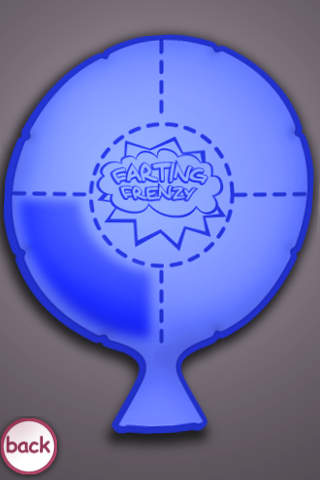
Farting Frenzy XL - Hilarious Simon Says Game
Desarrollador General Amusement LLC
This is the original hilarious take on the classic memory game Simon Says.
Try to hold back the tears of laughter as you listen to and echo back a sequence of flatulence. Each round the sequence is followed by one more brown note which the player repeats back on the virtual whoopie cushion. The game ends when you toot a wrong note in the sequence.
Innovative free-play mode lets you break wind whenever you want for side-splitting bathroom humor and pranks using the whoopee cushion soundboard.
More on Simon Says:
The tradition behind the game may trace back to the year 1264, when Simon de Montfort captured King Henry III at the English town of Lewes. For the next year, any order Henry III gave could have been countermanded by de Montfort. The situation came to an end the following year when Henrys son Prince Edward took Simons castle by force and used his flags as a means to surprise Simons forces in 1265
The game exists in a number of non-English speaking countries. While some also use the name Simon (such as the Spanish "Simón dice", "Símon segir" in Icelandic, "Szymon mówi" in Polish, "시몬 가라사대" ("Simon says") in Korean, In Arabia: for example, "الجنرال عمل كده" (General commanded - Egypt version) or "قال المعلّم" (the teacher says - Lebanon version) in Arabic, "Kommando Pimperle" (or with similar rules "Alle Vögel fliegen hoch") in German, "Jacques a dit" ("James said") in French, "Jean dit" (John says) in Québec, "Commando" (the Dutch noun for "command") or "Jantje zegt" in Flemish parts of Belgium, in Dutch, "הרצל אמר" ("Herzl said") in Hebrew, "Deir Ó Grádaigh" ("OGrady says") in Irish, "Razvan spune" (Razvan says) in Romanian, in Turkish, "Yakup der ki" "船長さんの命令" (Senchosan no meirei "Captains orders") in Japanese, "Kongen befaler" ("the king commands") in Norwegian, "Kapteeni käskee" ("the captain commands") in Finnish, "老師話" ("the teacher says") in Cantonese, and "O mestre mandou" ("The master ordered") in Brazilian Portuguese.
"Simon Says" Wikipedia. 2010. Wikimedia Foundation, Inc.


